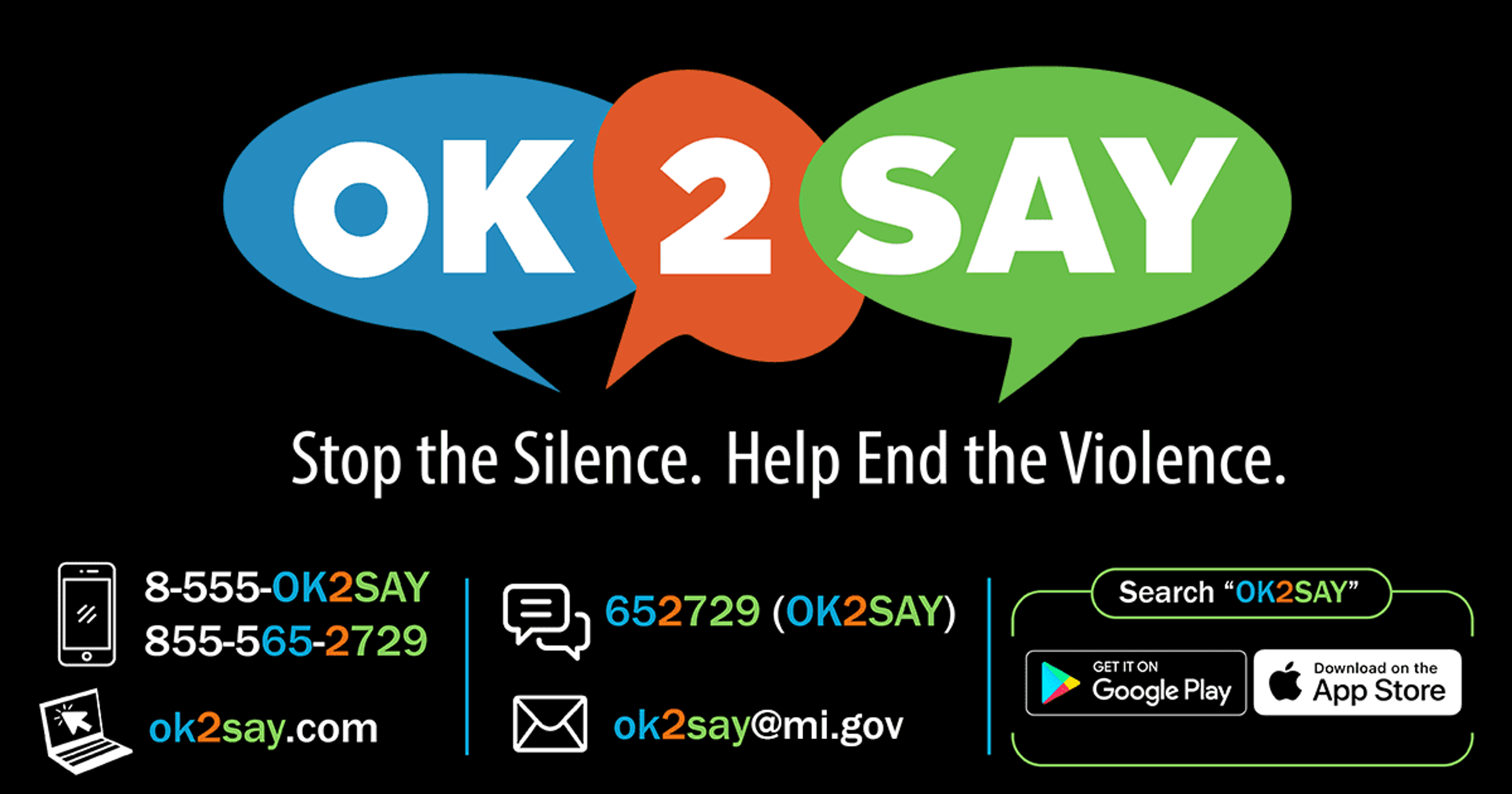How Parents Can Help Prevent Youth Suicide
Michigan State Police Office of School Safety
| 3 min read

If you are worried your child is at risk for suicide, you are not alone. In Michigan, one in every five high school students has contemplated suicide. And in 2021, emergency departments across the United States noted an increase in 12- to 17- year-olds seeking treatment for suicidal thoughts or actions. Many parents and/or guardians wonder: could this happen to my child? Regrettably, the answer is yes. Every year, young people of all races, ethnicities, gender identities, sexual orientations, socioeconomic backgrounds and diverse community settings die by suicide. So, what can we do to prevent suicide? Learning about the warning signs, risk factors and ways to get help is an important first step. The American Foundation for Suicide Prevention and the 988 Suicide and Crisis Lifeline offer resources to help understand the issues concerning suicide prevention and ways to help during a crisis. Find opportunities to talk about suicide with your child. Asking about suicidal thoughts or feelings will not push someone into doing something self-destructive. An empathic and validating conversation from you could mean the difference between your child suffering alone or choosing to seek help if they experience depression or suicidal thoughts.

Another way to help support your child is by discussing OK2SAY, Michigan’s Student Safety Program. OK2SAY is a confidential way for your child to report anything that threatens their safety or the safety of others. Tips can be submitted 24 hours a day, seven days a week, online (www.ok2say.com); by texting 652729 (OK2SAY); by email (ok2say@mi.gov); by phone (855-565-2729); or by downloading and using the mobile app. Students often know of safety concerns before adults. Your child may be aware of a friend or peer who is struggling with thoughts of suicide, but they do not know what to do. It is common for young people to feel overwhelmed when they are worried about someone at risk. They might believe they are betraying a friend’s confidence if they say something. Encourage your child to talk to you or a trusted adult, or to contact OK2SAY if they are worried that a friend or peer is struggling, or they have a safety concern. The benefit of keeping a friend safe outweighs the loss of confidentiality or friendship. When our children make the courageous decision to speak up, they equip authorities with the information needed to respond to threats and avert tragedy, and that is a beneficial outcome for Michigan schools, communities and families. -- The Michigan State Police, Office of School Safety (OSS) is committed to delivering quality services to schools throughout the state of Michigan. By fostering communication between school and law enforcement, the OSS promotes strategies to encourage safe and secure learning environments that reduce threats, build trust, and improve the quality of life for K-12 students in Michigan. Opinions expressed in this blog belong solely to the author and do not necessarily reflect the opinions or beliefs of Blue Cross Blue Shield of Michigan or its subsidiaries and affiliates. More from MIBluesPerspectives:
- Back to School Mental Health Checkups
- Signs of Back-to-School Anxiety in Kids
- Kevin Fischer Lost His Son to Suicide. Now He’s Dedicated to Helping Families Avoid the Same Trauma
Photo credit: Getty Images





